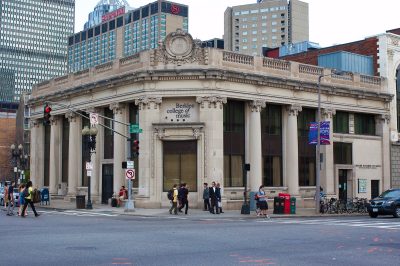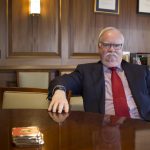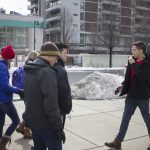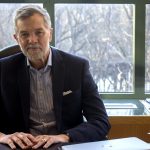
The Berklee College of Music and the Boston Department of Arts and Culture teamed up Saturday morning to host a panel on how to increase LGBTQ inclusivity on college campuses.
The panel, hosted at the Boston Public Library, was followed by a presentation on the legacy of Matthew Shepard, a gay student at the University of Wyoming who was kidnapped, assaulted and killed in 1998.
Kevin Johnson, the director of the Office for Diversity and Inclusion at Berklee, told The Daily Free Press before the panel that he hoped it would be an opportunity to discuss ways in which the LGBTQ community could be better supported, considering the kind of legacy Shepard left behind.
“The purpose was to create a day and a space for the wider Boston community, particularly higher-educators and students, to really reflect on the life of Matthew Shepard and what his legacy has been,” said Johnson, who also moderated the discussion. “Our students are telling us that this is an important topic, especially after the election.”
Johnson emphasized the significance of problems that many in the LGBTQ community face on a daily basis, now more than ever.
“After the election, we saw a lot of students who, for obvious reasons, were feeling unsafe and unsure of where the climate was headed,” Johnson said. “I think many were worried about their rights being dismantled, that many of them worked so hard for.”
Six speakers discussed the issue of inclusivity on college campuses, including what it means, how communities could be made more inclusive and instances in which they have seen inclusivity thrive.
Rene Pfister, a panelist and a voice professor at Berklee, recalled a time when one of his students came to him in tears because a supporter of President Donald Trump assaulted him.
“As a gay man who went to Berklee years ago, who experienced a lot of homophobia when I was in school at that time, I was enraged,” he said. “I was upset and I wanted to find a way to bring voice to that.”
Andy Chau, the associate director of New Student and Faculty Programs at Berklee, said giving students the space to have meaningful conversations brings inclusivity to the next level.
“Creating space for students to reflect is something that I always think about,” Chau said. “And giving the students the space to have a conversation, whether it be with peers or staff members or with faculty, or just time to think. Sometimes students are overwhelmed with feelings.”
Fellow panelist Daniel Soghomonian, who runs a work-study program and a mental health education initiative at Berklee, said although inclusivity is getting better, making all students feel comfortable being who they are is an ongoing process.
“I think there are very few colleges that are not trying,” he said. “It does not mean that we’ve struck gold … We’re never going to be really aware of the whole problem unless we can have this kind of open dialogue with each other and with the students.”
Several attendees said after the discussion that they had similar perspectives regarding making colleges more inclusive for students and faculty.
Lee Denton-Smith, 33, of the South End, said meaningful conversation is a crucial step to making communities more inclusive.
“The issues having to do with the LGBT community have always been important to me, as an openly gay man myself, but it’s become a lot more urgent right now,” Denton-Smith said. “I’m hoping that one of the places we can eventually get to is where … we can really listen to each other, hear each other’s concerns and figure out ways to address it, or at least try to find some kind of common ground.”
Tony Martin, 33, of Waltham, is the chair of the LGBTQ Steering Committee at Bentley University. He said he hopes to see more involvement from students in the future.
“[I want to see] more discussions and providing the spaces to have those discussions,” Martin said. “We in higher education and student affairs, are trying to provide spaces, but I really do actually hope that our students also want and demand that we provide these spaces for them.”
Jessica Kenerson, 34, of Waltham, said she hopes as a staff member at Bentley University, she can provide the kind of support she wishes she had received to her students.
“As a member of the LGBTQ community, I did not feel as supported through my college experience as I perhaps would have liked,” she said. “It’s important now, being in a position of power and privilege as a staff member, to be able to provide a more supportive environment for our students at Bentley.”





Great article.